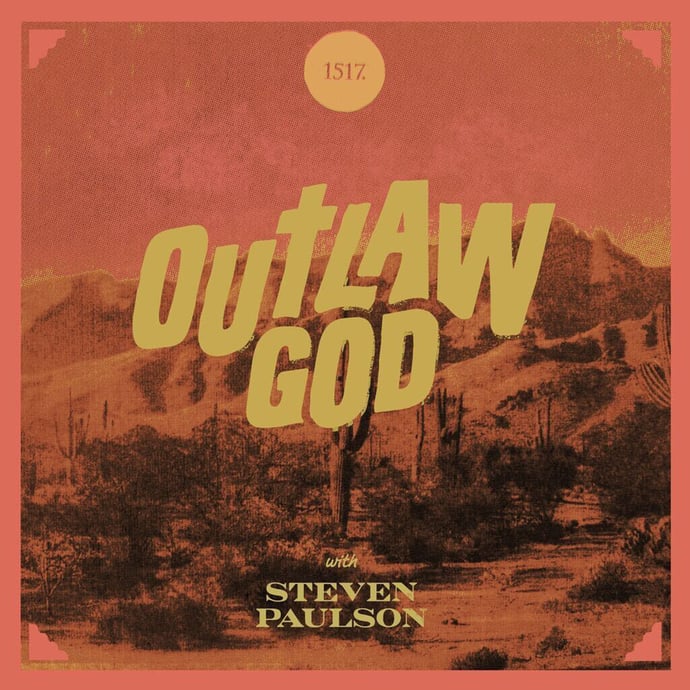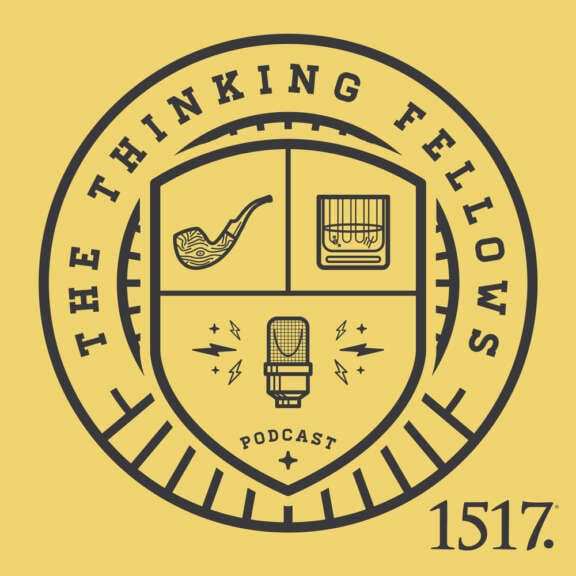Jesus proves His divinity by not only being master over creation, but in being master of life and death. Peter proves both his faith and faithlessness by putting his eyes on Jesus and then immediately taking them back off.
Podcasts
Each 1517 Podcast is dedicated to delivering Christ-centered content through weekly, monthly, and seasonal audio platforms. Listen online or on your favorite podcasting app.
Author
- All Authors
- Aaron Zimmerman
- Adam Francisco
- Amy Mantravadi
- Blake Flattley
- Bob Hiller
- Bradley Gray
- Brian W. Thomas
- Bror Erickson
- Bruce Hillman
- Caleb Keith
- Chad Bird
- Chris Rosebrough
- Christopher Gillespie
- Cindy Koch
- Craig Donofrio
- Dan van Voorhis
- Daniel Deen
- Daniel Emery Price
- Darrin Sheek
- David Andersen
- David Rufner
- David Zahl
- Debi Winrich
- Delwyn Campbell
- Donavon Riley
- Doug Klembara
- Edward Killian
- Elyse Fitzpatrick
- Erick Sorensen
- Flame
- Grant Klembara
- Gretchen Ronnevik
- Haroldo Camacho
- Jacob Smith
- Jared C. Wilson
- Jeff Mallinson
- Jeffrey Pulse
- Jessica Thompson
- Jim Nestingen
- Joel Fitzpatrick
- Joel Hess
- John Andrew Schreiner
- John Bombaro
- John T. Pless
- John W. Hoyum
- John Warwick Montgomery
- Katie Koplin
- Kelsi Klembara
- Ken Sundet Jones
- Magnus Persson
- Matt Popovits
- Michael Berg
- Michael Horton
- Nick Lannon
- Paul Koch
- Peter Nafzger
- Philip Bartelt
- Raleigh Sadler
- RJ Grunewald
- Robert Kolb
- Rod Rosenbladt
- Ron Hodel
- Sam Leanza Ortiz
- Sarah Condon
- Sarah Crowder
- Scott Davis
- Scott Keith
- Steven Paulson
- Tanner Olson
- Troy Neujahr
- Uwe Siemon-Netto
- Wade Johnston
- William Cwirla
-
Herod fulfills his promise so that Jesus can fulfill His; John decreases, Jesus increases.
-
It's easy to look at our faith through an emotional lens. Are you on an emotional high, or an emotional low? Are you on a mountaintop, or are things silent in the valley? What happens to your faith when you aren't "feeling it."
-
In this episode Gretchen and Katie get to as Kelsi Klembara about the practical implications of giving assurance. To put it another way, what is the fruit of giving assurance?
-
In this episode, we interview one of our favorite people: Kelsi Klembara, editor of the 1517 website. Kelsi has done a lot of research on the topic of assurance of our salvation from both a theological and historical point of view, and we had some questions for her.
-
We finish up our conversation with Heidi Goehmann on the relationship between mental health and theology.
-
This episode extends further into questions about certainty and evil. Dr. Paulson discusses the concept of "whatever doesn't kill you makes you stronger."
-
It has been 1 year since Katie and Gretchen started the Freely Given podcast.
-
Caleb and Scott discuss free will, the fall into sin, and human reason.
-
What does the Prince of Peace mean when He says, "I've come not to bring peace, but a sword?" In sending out The Twelve, Jesus reminds us all of just Who is our very identity.
-
Jesus uses a lot of animal metaphors in order to instruct His disciples in how to interact with the world.
-
At the end of chapter five of Luther's Outlaw God, Dr. Paulson fast-forwards from Luther and Erasmus to Hegel.



